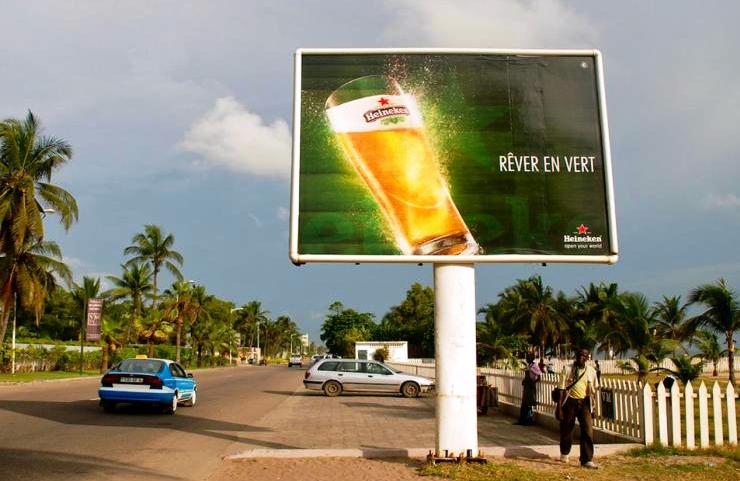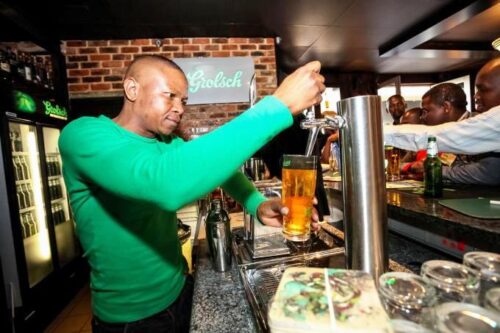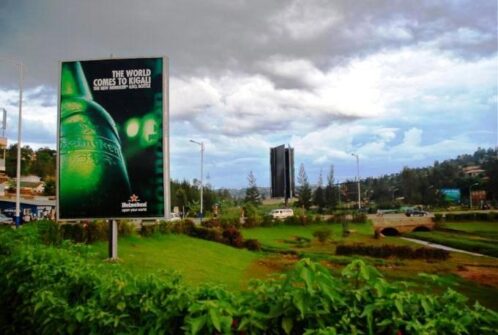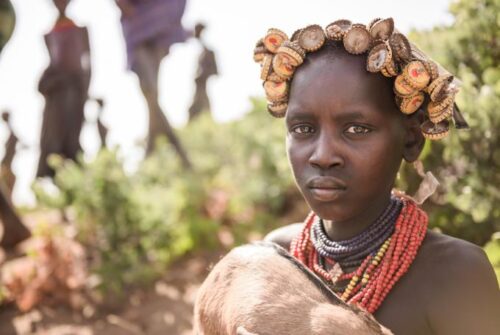Africa. The New Eldorado of Beer.

Competing for the continent are the French Groupe Castel and the Dutch Heineken.
An informal economy strongly rooted not only in the villages but also in the big cities, slow and insufficiently extensive distribution channels for goods, and low purchasing power on the part of the local populations are the three factors that in recent decades have kept many of the most powerful beer producers on the planet at a safe distance from the African market. However, there are those who have decided to believe in this challenge, and today, often with aggressive entrepreneurial manoeuvres they are reaping the fruits of this choice.

Johannesburg. Barman pouring a pint of draft beer. (Photo:123rf)
Although African demand covers only 3% of the global market for this product, its growth rate in recent years has been confirmed as one of the highest. To the point that, according to estimates reported by Jeune Afrique, by 2025 this percentage will rise to 37%. Competing for the market are four foreign giants: the French Groupe Castel, the Dutch Heineken, the Belgian-Brazilian AB InBev, and the British Diageo. Collectively, these multinationals share 93% of African beer demand. The confrontation – made up of acquisitions of breweries at a rapid pace, acquisitions of local brands, mergers, and alliances that are made and unmade in the space of a couple of pints – is tight and sees especially Groupe Castel and Heineken opposing each other.
The empire of Pierre Castel
Present in fifteen African countries through its subsidiary Brasseries et Glacières Internationales, born from the acquisition of Brasseries et Glacières d’Indochine, Groupe Castel holds the monopoly in the sector in a dozen African countries. It has about sixty breweries employing 30,000 workers. Behind this preference of Groupe Castel for Africa, which in 2021 contributed over 70% of its turnover of 4.4 billion euros, there are the excellent relationships that for years have linked its founder Pierre Castel with many African heads of state. In recent times, Groupe Castel has increased its influence both on Diageo, from which it acquired two production sites in Ethiopia (Meta Abo Brewery) and Cameroon (Guinness Cameroon), and on AB InBev, of which it holds 38% of the assets in Africa.

Heineken in Africa. Photo: Olivier van Beemen.
If anything, some judicial squabbles are holding back the course of the French business. News at the end of December is the payment of 286 million Swiss francs that Pierre Castel will have to pay to the Swiss tax authorities for having failed to declare part of its assets in 2007 and 2008. While last July the French judiciary launched an investigation against a company controlled in the Central African Republic by Somdiaa, a leading agri-food company in Africa and partner of the Castel Group, accused of supporting local armed groups.
Heineken creates pressure
In 2011, Heineken officially launched the challenge to Groupe Castel by breaking into the Ethiopian market and snatching the leadership from the French company within a few years. In 2017, the Dutch giant landed in Ivory Coast with the Brassivoire brand, breaking here too the monopoly of Groupe Castel which had lasted for sixty years. Last year, it first acquired Distell Group, a South African company specializing in the production of high-end cider and liqueurs and, subsequently, Namibia Breweries Limited. In 2018, the book ‘Heineken in Africa’ by the Dutch journalist Olivier Van Beemen recounted this rise in detail: ‘In 2005 – writes the author – with the appointment of Van Boxmeer as chairman of the board of directors, the group found itself led by someone with a passion for Africa who restored strategic importance to the continent through a series of acquisitions and expansions.

Ethiopia. A girl from Dassanech ethnic group wears a beautiful hat made of beer caps. (Photo:123rf)
Heineken first established itself in Algeria, Tunisia, Ethiopia, and the Ivory Coast and invested tens of millions in breweries: in Lubumbashi (DR Congo), Sedibeng (South Africa), Addis Ababa (Ethiopia), Abidjan (Ivory Coast) and Maputo (Mozambique). In Africa, for over a century, Heineken has shown impressive determination and perseverance, even in the most difficult moments. At the same time, controversial and fraudulent practices have played a significant role in its survival strategy’. Witness to this are some aggressive marketing campaigns, such as the one implemented in Nigeria where prostitutes were hired as hostesses to attract customers into bars that served Dutch beer. In the face of all this, the consumption of traditional alcoholic beverages, such as tchapalo millet beer, the bili-bili popular in Cameroon, or the chibuku sorghum beer drunk in East African countries, risks disappearing. (Photo: Credit: Olivier van Beemen for Africa is a Country, under Creative Commons License)
Rocco Bellantone



